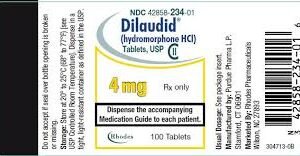Description
What is Ibuprofen PM?
Ibuprofen PM is a combination of two active ingredients:
- Ibuprofen (200 mg): An NSAID that works by reducing inflammation, pain, and fever. It is commonly used to treat conditions like headaches, muscle aches, menstrual cramps, and minor arthritis pain.
- Diphenhydramine (25 mg): An antihistamine that works primarily as a sedative to help with sleep. It is also commonly found in many over-the-counter allergy medications.
The combination of these two active ingredients makes Ibuprofen PM particularly useful for people who have both pain and difficulty sleeping. The ibuprofen reduces the pain or discomfort, while the diphenhydramine helps induce sleep by acting on the central nervous system.
How Does Ibuprofen PM Work?
- Pain Relief (Ibuprofen):
- Ibuprofen works by blocking the production of prostaglandins, chemicals in the body that promote inflammation, pain, and fever. By reducing the level of these chemicals, ibuprofen provides pain relief and helps reduce swelling and fever.
- Common conditions that ibuprofen treats include headaches, muscle pain, toothaches, minor arthritis, and menstrual cramps.
- Sleep Aid (Diphenhydramine):
- Diphenhydramine, an antihistamine, works by blocking histamine receptors in the brain. Histamine is a neurotransmitter that helps regulate wakefulness. By blocking this action, diphenhydramine can cause drowsiness, helping individuals fall asleep more easily.
- Diphenhydramine also has anticholinergic properties, which further promote sedation and help with sleep. It is often used as a short-term sleep aid or to treat mild insomnia.
Indications for Ibuprofen PM Use
Ibuprofen PM is generally used for:
- Pain with Insomnia: If you are experiencing pain that disrupts your sleep (such as muscle aches, headaches, or minor arthritis pain), Ibuprofen PM can help manage both the pain and the sleep disturbance.
- Occasional Sleeplessness: For those who have trouble sleeping occasionally due to discomfort or minor pain, Ibuprofen PM may be an effective solution.
- Minor Aches and Pains: It can be used to treat short-term pain due to conditions like headaches, menstrual cramps, or backaches, where the pain prevents sleep.
How to Use Ibuprofen PM
It’s important to follow the dosing instructions provided by the manufacturer or your healthcare provider to avoid complications, especially considering the sedative effects of diphenhydramine.
- Dosage: The typical dose is one tablet of Ibuprofen PM, taken 30 minutes before bedtime.
- The usual dosage is 200 mg of ibuprofen and 25 mg of diphenhydramine in one tablet.
- If additional doses are needed, it should be taken only after 4 to 6 hours.
- Directions for Use:
- Swallow the tablet whole with a glass of water.
- Do not crush or chew the tablet, as this may interfere with the effectiveness of the medication.
- Make sure to take the medication only as needed and for short-term use, as prolonged use of sleeping aids can lead to dependency or other complications.
- Avoid Alcohol: Alcohol can increase the sedative effects of diphenhydramine and may heighten the risk of side effects, such as drowsiness, dizziness, and impaired motor function.
Potential Side Effects of Ibuprofen PM
Like any medication, Ibuprofen PM can cause side effects. Common side effects include:
- Drowsiness: Since it contains diphenhydramine, drowsiness and sedation are the most common side effects.
- Dizziness or Lightheadedness: Some individuals may experience dizziness or a feeling of being lightheaded, especially when standing up quickly.
- Dry Mouth: Diphenhydramine can cause dry mouth and throat.
- Upset Stomach: As with any NSAID, ibuprofen can irritate the stomach lining, leading to nausea or stomach upset.
- Constipation or Diarrhea: Some people may experience digestive disturbances while using the product.
Serious Side Effects
In rare cases, Ibuprofen PM can cause more serious side effects, including:
- Severe Allergic Reaction: This may include rash, itching, swelling (especially of the face, lips, or tongue), or difficulty breathing. If you experience these symptoms, seek immediate medical attention.
- Heart, Kidney, or Liver Issues: Long-term or excessive use of ibuprofen can lead to issues with the heart, liver, or kidneys. Symptoms like yellowing of the skin or eyes, dark urine, or shortness of breath should be reported immediately.
- Gastrointestinal Bleeding: Ibuprofen can cause irritation to the gastrointestinal (GI) tract, leading to bleeding. If you notice black or tarry stools, vomiting blood, or unexplained stomach pain, seek medical help immediately.
Who Should Not Use Ibuprofen PM?
Ibuprofen PM is not suitable for everyone. People with the following conditions should avoid using it or consult their healthcare provider before taking it:
- Allergy to NSAIDs: If you have a history of allergic reactions to ibuprofen, aspirin, or other NSAIDs, do not use this product.
- Peptic Ulcers or GI Issues: Individuals with stomach ulcers, gastrointestinal bleeding, or other significant GI disorders should avoid ibuprofen-containing products.
- Liver or Kidney Disease: Those with liver or kidney disease should use this product with caution, as ibuprofen can strain these organs.
- Breathing Disorders: Since diphenhydramine can cause drowsiness and sedation, it may worsen conditions like sleep apnea or other respiratory issues. Consult your doctor if you have these conditions.
- Pregnancy and Breastfeeding: Pregnant or breastfeeding women should consult their healthcare provider before using Ibuprofen PM, especially during the later stages of pregnancy, as NSAIDs may harm the fetus or affect milk production.
Drug Interactions
Ibuprofen PM may interact with certain medications, including:
- Other Sedatives or Sleep Aids: Combining Ibuprofen PM with other sleep medications, alcohol, or sedatives can lead to excessive drowsiness, respiratory depression, and impaired motor skills.
- Blood Thinners: Since ibuprofen affects platelet function, it may increase the risk of bleeding when taken with blood thinners like warfarin.
- Antidepressants: Combining diphenhydramine with antidepressants (especially monoamine oxidase inhibitors or MAOIs) may lead to increased sedation or other side effects.
- High Blood Pressure Medications: NSAIDs can reduce the effectiveness of certain blood pressure medications, particularly ACE inhibitors, diuretics, and beta-blockers.
Precautions and Warnings
- Short-Term Use: Ibuprofen PM should only be used for short-term relief of pain and sleep disturbances. If pain persists for more than a few days, or if you have ongoing sleep issues, consult your healthcare provider.
- Avoid Operating Machinery: The sedative effects of diphenhydramine can impair your ability to perform tasks that require full alertness, such as driving or operating heavy machinery. Do not use Ibuprofen PM if you need to be alert the next day.
- Hydration: Make sure to drink plenty of fluids, especially if you experience dry mouth or other side effects.
Conclusion
Ibuprofen PM is a useful over-the-counter medication for those who suffer from pain and difficulty sleeping due to minor discomfort or aches. By combining the pain-relieving properties of ibuprofen with the sedative effects of diphenhydramine, it can provide effective relief for both pain and insomnia. However, it should be used with caution, especially for individuals with certain medical conditions, and should only be used for short-term relief. Always follow the dosage instructions and consult a healthcare provider if you have any concerns or if symptoms persist.






Reviews
There are no reviews yet.